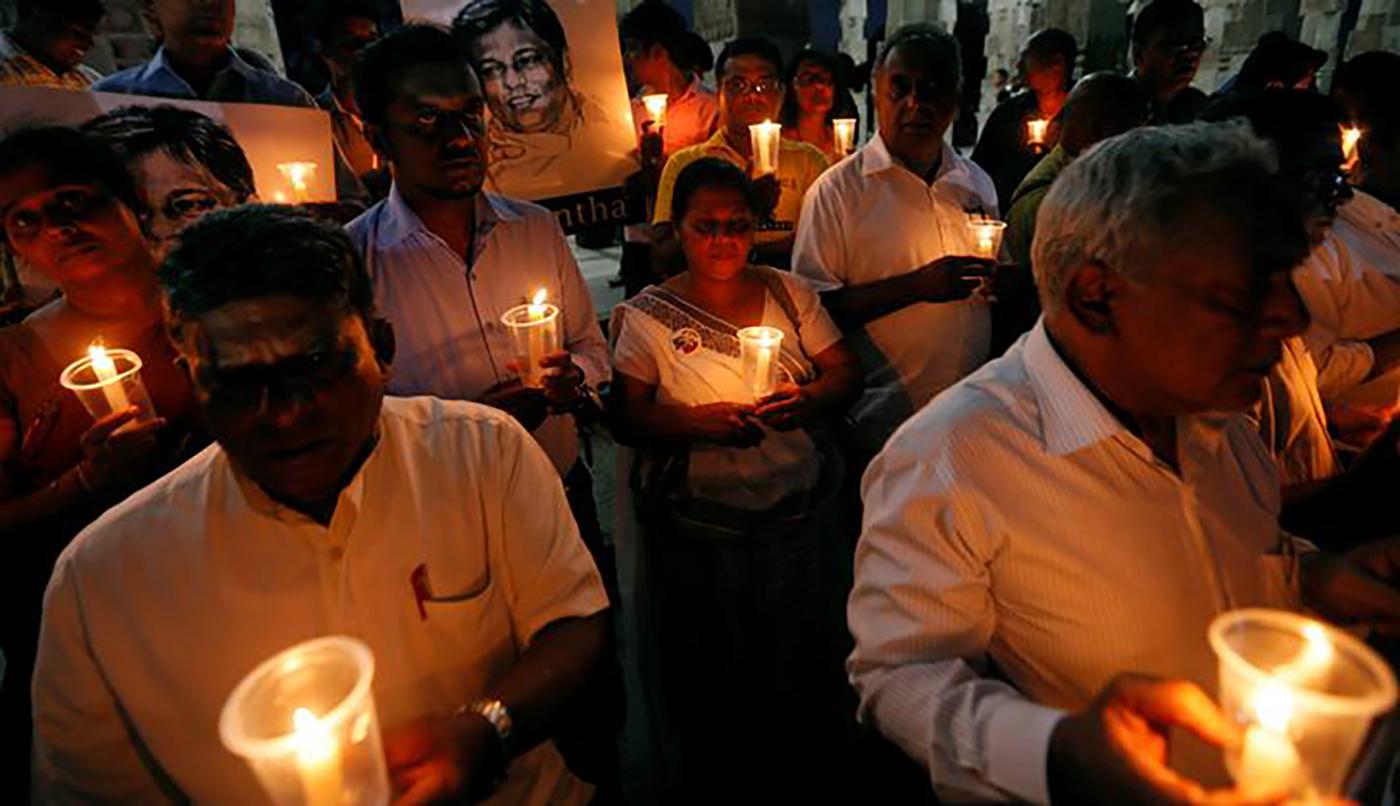Government Delays Implementing Rights Pledges to UN
by Human Rights Watch, New York, January 18, 2018
(New York) – The Sri Lankan government stalled on its key pledges to provide justice for conflict-related violations and strengthen human rights protections, Human Rights Watch said today in its World Report 2018. The government took some steps in 2017 to reduce restrictions on speech and assembly, but there was little progress on transitional justice initiatives agreed to at the United Nations Human Rights Council in 2015.
In the 643-page World Report, its 28th edition, Human Rights Watch reviews human rights practices in more than 90 countries. In his introductory essay, Executive Director Kenneth Roth writes that political leaders willing to stand up for human rights principles showed that it is possible to limit authoritarian populist agendas. When combined with mobilized publics and effective multilateral actors, these leaders demonstrated that the rise of anti-rights governments is not inevitable.
“Victims of abuses who struggled for years seeking justice finally had a moment of hope two years ago when Sri Lanka pledged to the UN to take action,” said Meenakshi Ganguly, South Asia director. “Since then, victims have received many words but little action. The government needs to put a timetable in place for meeting its pledges to the world and to the Sri Lankan people.”
In October 2015, the Sri Lankan government agreed to a consensus resolution at the UN Human Rights Council to establish four pillars of transitional justice. While it conducted national consultations on issues around the resolution, the government has since failed to act on the recommendations. In July 2017, the government announced after many delays and setbacks that it would operationalize an Office on Missing Persons. But there was no meaningful progress during the year on the other three justice mechanisms, most notably a judicial mechanism to prosecute those responsible on all sides for grave crimes committed during the country’s civil war.
The government’s pledge to repeal the Prevention of Terrorism Act (PTA), which was used both during and after the civil war to detain terrorism suspects for years without charge or access to counsel, also languished. In the last couple of years, the government under President Maithripala Sirisena released many of those long detained under the PTA, but offered no reparations or apologies to those arbitrarily held.
The government has yet to take meaningful steps to reform laws criminalizing same-sex relations. Muslim women campaigned for amendments to discriminatory marriage laws.
In March 2018, Sri Lanka will appear before the Human Rights Council for an interim report by the high commissioner for human rights. UN member countries should press strongly for the government to deliver on its commitments to its population and the UN.
